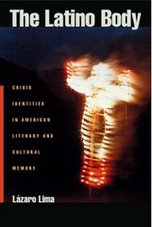"Cane fields are scary. Any time you drive by them they're like triffids. They crack in the wind." Junot Díaz
Through an American Street Vernacular (ASV) unburdened by protocol there emerges a beautifully nuanced new "American" language with this guy. Why didn't Colbert rile him for more?
Friday, June 27, 2008
Sunday, June 15, 2008
Is "Guantànamo" [sic] better than "Gitmo" [sic]?
 Can content be trusted over form?
Can content be trusted over form? The acute accent mark is a diacritic used to denote pronunciation stress that deviates from standard pronunciation in many modern written languages with alphabets based on Latin, Cyrillic, and Greek scripts. In today's New York Times' Week in Review piece by Jonathan Mahler, "WAR POWERS: Why This Court Keeps Rebuking This President," "Guantànamo Bay" is not the same as Guantánamo Bay. It's disappointing to read an article as careless in content as it is in orthography. Spanish speakers shouldn't depend on the likes of El País for intelligent and clean op-ed pieces.
"The second ruling, in Rasul v. Bush, came soon after the scandal at Abu Ghraib. Though momentous, it was still limited. The court found, 6-3, that Guantànamo Bay was within United States jurisdiction and subject to its laws, meaning detainees there were entitled to some sort of due process in American courts. It didn’t specify the process, nor suggest that Congress couldn’t amend a law through which detainees could access the courts."
Saturday, June 7, 2008
The Latino Body at War: Camilo Mejía
 Staff Sergeant Camilo Mejía became the new face of the antiwar movement in early 2004 when he applied for a discharge from the Army as a conscientious objector. After serving in the Army for nearly nine years, he was the first known Iraq veteran to refuse to fight, citing moral concerns about the war and occupation. His principled stand helped to rally the growing opposition and embolden his fellow soldiers.
Staff Sergeant Camilo Mejía became the new face of the antiwar movement in early 2004 when he applied for a discharge from the Army as a conscientious objector. After serving in the Army for nearly nine years, he was the first known Iraq veteran to refuse to fight, citing moral concerns about the war and occupation. His principled stand helped to rally the growing opposition and embolden his fellow soldiers.Despite widespread public support and an all-star legal team, Mejía was eventually convicted of desertion by a military court and sentenced to a year in prison, prompting Amnesty International to declare him a prisoner of conscience.
Now released after serving almost nine months, the celebrated soldier-turned-pacifist tells his own story, from his upbringing in Central America and his experience as a working-class immigrant in the United States to his service in Iraq—where he witnessed prisoner abuse and was deployed in the Sunni triangle—and time in prison. Far from being an accidental activist, Mejía was raised by prominent Sandinista revolutionaries and draws inspiration from Jesuit teachings. In this stirring book, he argues passionately for human rights and the end to an unjust war.
Road from ar Ramadi: The Private Rebellion of Staff Sergeant Camilo Mejía
Subscribe to:
Comments (Atom)

